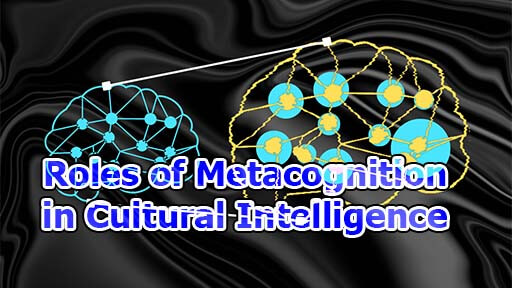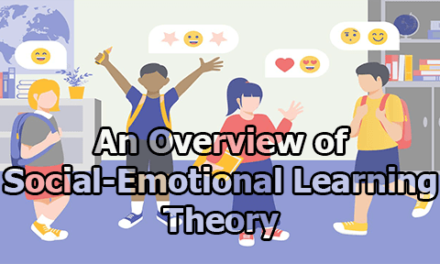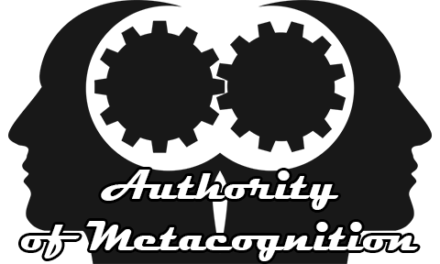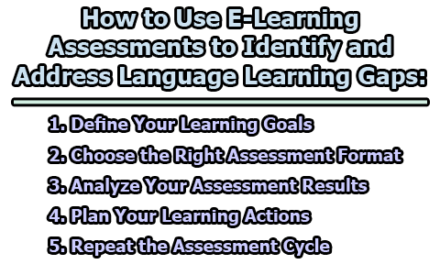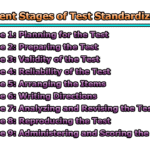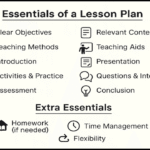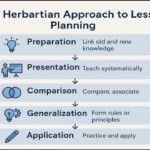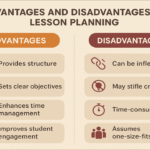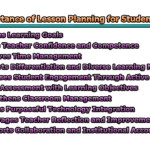Roles of Metacognition in Cultural Intelligence:
Metacognition is the process of thinking about thinking. It is the ability to monitor one’s own thinking and regulate it. Metacognition is an essential element of learning, problem-solving, and decision-making. Cultural intelligence (CQ) is the ability to function effectively in culturally diverse situations. It is the capability to adapt to different cultural contexts and work effectively with people from different cultural backgrounds. Metacognition can play a vital role in enhancing cultural intelligence. In this article, we will discuss the roles of metacognition in cultural intelligence.
- Self-Awareness: Metacognition helps individuals to become self-aware. It enables individuals to identify their own thinking patterns and biases. Self-awareness is a crucial element of cultural intelligence. It helps individuals to understand their own cultural background, values, and beliefs. By understanding their own cultural background, individuals can be more empathetic towards people from different cultural backgrounds. Self-awareness also helps individuals to identify their own limitations and strengths. This awareness enables individuals to adapt to different cultural contexts effectively.
- Cognitive Flexibility: Metacognition enhances cognitive flexibility. Cognitive flexibility is the ability to shift between different thinking strategies or mental frameworks. It is an essential element of cultural intelligence. Individuals with high cognitive flexibility can adapt to different cultural contexts more effectively. Metacognition enables individuals to identify their own thinking patterns and biases. By identifying their own thinking patterns, individuals can become more flexible in their thinking. This flexibility enables individuals to adapt to different cultural contexts and work effectively with people from different cultural backgrounds.
- Reflection: Metacognition promotes reflection. Reflection is the process of thinking deeply about one’s own experiences, beliefs, and values. Reflection is an essential element of cultural intelligence. It enables individuals to learn from their own experiences and adapt to different cultural contexts. Metacognition enables individuals to reflect on their own thinking and behavior. By reflecting on their own thinking and behavior, individuals can identify their own biases and limitations. This reflection enables individuals to adapt to different cultural contexts and work effectively with people from different cultural backgrounds.
- Problem-solving: Metacognition enhances problem-solving. Problem-solving is the process of finding solutions to complex problems. Problem-solving is an essential element of cultural intelligence. Individuals with high problem-solving skills can adapt to different cultural contexts more effectively. Metacognition enables individuals to identify their own thinking patterns and biases. By identifying their own thinking patterns, individuals can become more effective problem solvers. Effective problem-solving skills enable individuals to adapt to different cultural contexts and work effectively with people from different cultural backgrounds.
- Decision-making: Metacognition enhances decision-making. Decision-making is the process of making choices among different options. Decision-making is an essential element of cultural intelligence. Individuals with high decision-making skills can adapt to different cultural contexts more effectively. Metacognition enables individuals to identify their own thinking patterns and biases. By identifying their own thinking patterns, individuals can become more effective decision-makers. Effective decision-making skills enable individuals to adapt to different cultural contexts and work effectively with people from different cultural backgrounds.
- Communication: Metacognition enhances communication. Communication is the process of exchanging information between individuals. Communication is an essential element of cultural intelligence. Effective communication skills enable individuals to adapt to different cultural contexts more effectively. Metacognition enables individuals to identify their own thinking patterns and biases. By identifying their own thinking patterns, individuals can become more effective communicators. Effective communication skills enable individuals to adapt to different cultural contexts and work effectively with people from different cultural backgrounds.
- Creativity: Metacognition enhances creativity. Creativity is the ability to generate novel ideas or solutions. Creativity is an essential element of cultural intelligence. Individuals with high creativity skills can adapt to different cultural contexts more effectively. Metacognition enables individuals to identify their own thinking patterns and biases. By identifying their own thinking patterns, individuals can become more creative in their thinking. Creative thinking enables individuals to adapt to different cultural contexts and come up with innovative solutions to cultural challenges.
- Empathy: Metacognition enhances empathy. Empathy is the ability to understand and share the feelings of others. Empathy is an essential element of cultural intelligence. Individuals with high empathy can adapt to different cultural contexts more effectively. Metacognition enables individuals to identify their own thinking patterns and biases. By identifying their own thinking patterns, individuals can become more empathetic towards people from different cultural backgrounds. Empathy enables individuals to understand and appreciate the cultural differences of others.
- Adaptability: Metacognition enhances adaptability. Adaptability is the ability to adjust to new situations or environments. Adaptability is an essential element of cultural intelligence. Individuals with high adaptability can function effectively in different cultural contexts. Metacognition enables individuals to identify their own thinking patterns and biases. By identifying their own thinking patterns, individuals can become more adaptable in their thinking. Adaptability enables individuals to adjust to different cultural contexts and work effectively with people from different cultural backgrounds.
- Open-mindedness: Metacognition promotes open-mindedness. Open-mindedness is the ability to consider different perspectives and ideas. Open-mindedness is an essential element of cultural intelligence. Individuals with high open-mindedness can adapt to different cultural contexts more effectively. Metacognition enables individuals to identify their own thinking patterns and biases. By identifying their own thinking patterns, individuals can become more open-minded in their thinking. Open-mindedness enables individuals to consider different perspectives and ideas from people with different cultural backgrounds.
- Cultural Awareness: Metacognition enhances cultural awareness. Cultural awareness is the understanding of the values, beliefs, and customs of different cultures. Cultural awareness is an essential element of cultural intelligence. Metacognition enables individuals to reflect on their own cultural background, values, and beliefs. By reflecting on their own cultural background, individuals can become more aware of their own cultural biases and limitations. Cultural awareness enables individuals to understand and appreciate the cultural differences of others.
- Self-Regulation: Metacognition promotes self-regulation. Self-regulation is the ability to control one’s own behavior and emotions. Self-regulation is an essential element of cultural intelligence. Individuals with high self-regulation can adapt to different cultural contexts more effectively. Metacognition enables individuals to monitor their own behavior and emotions. By monitoring their own behavior and emotions, individuals can become more self-regulated in their interactions with people from different cultural backgrounds.
- Self-Evaluation: Metacognition enables individuals to evaluate their own performance. Self-evaluation is the process of assessing one’s own strengths and weaknesses. Self-evaluation is an essential element of cultural intelligence. It enables individuals to identify areas for improvement and enhance their performance in culturally diverse situations. Metacognition enables individuals to reflect on their own thinking and behavior. By reflecting on their own thinking and behavior, individuals can evaluate their own performance and make adjustments to improve their cultural intelligence.
- Resilience: Metacognition enhances resilience. Resilience is the ability to bounce back from difficult situations or challenges. Resilience is an essential element of cultural intelligence. Individuals with high resilience can adapt to different cultural contexts more effectively. Metacognition enables individuals to identify their own thinking patterns and biases. By identifying their own thinking patterns, individuals can become more resilient in their thinking. Resilience enables individuals to overcome cultural challenges and bounce back from difficult situations in culturally diverse contexts.
- Lifelong Learning: Metacognition promotes lifelong learning. Lifelong learning is the process of acquiring knowledge and skills throughout one’s life. Lifelong learning is an essential element of cultural intelligence. It enables individuals to continue to adapt to different cultural contexts and work effectively with people from different cultural backgrounds. Metacognition enables individuals to reflect on their own learning and identify areas for improvement. By reflecting on their own learning, individuals can become lifelong learners and enhance their cultural intelligence over time.
From the above discussion, we can say that metacognition plays a crucial role in enhancing cultural intelligence. It enables individuals to become self-aware, enhance cognitive flexibility, promote reflection, problem-solving, decision-making, communication, creativity, empathy, adaptability, open-mindedness, cultural awareness, self-regulation, self-evaluation, resilience, and lifelong learning. By developing metacognitive skills, individuals can become more effective in culturally diverse situations and adapt to different cultural contexts more effectively.
References:
- Mandernach, J. M., Rasmussen, K. L., & Calabrese, T. (2017). Metacognitive strategies for enhancing cultural intelligence: A case study. Journal of International Education Research, 13(1), 23-36.
- Sinicrope, C., Norris, J. A., & Watanabe, Y. (2007). Understanding and assessing intercultural competence: A summary of theory, research, and practice. Second Language Studies, 26(1), 1-58.
- Ang, S., Van Dyne, L., Koh, C., Ng, K. Y., Templer, K. J., Tay, C., & Chandrasekar, N. A. (2007). Cultural intelligence: Its measurement and effects on cultural judgment and decision making, cultural adaptation and task performance. Management and Organization Review, 3(3), 335-371.
- Zhang, Y. (2020). How metacognition supports the development of cultural intelligence in study abroad students. Journal of Studies in International Education, 24(5), 484-502.
- Chua, R. Y. J., Morris, M. W., & Shaffer, M. A. (2019). The rise of cultural intelligence and its effects on global leaders’ decision-making. Academy of Management Perspectives, 33(4), 422-438.
- Ke, Y., & Zhang, Y. (2018). Metacognitive awareness, intercultural communication competence, and psychological well-being among international students: A serial multiple mediation model. Journal of Happiness Studies, 19(2), 425-442.
- Li, M., & Wu, C. H. (2016). Cultural intelligence and its importance for global leadership development. Advances in Global Leadership, 9, 61-82.
- Wang, Y. (2019). Enhancing cultural intelligence through metacognitive strategies. Journal of Studies in International Education, 23(2), 212-227.
- Li, X., Chen, G., & Sinha, R. K. (2018). Linking cultural intelligence to cross-cultural adjustment: The role of metacognitive self-regulation and coping strategies. International Journal of Intercultural Relations, 62, 29-38.
- Earley, P. C., & Ang, S. (2003). Cultural intelligence: Individual interactions across cultures. Stanford University Press.
- Yang, B. (2020). The role of metacognition in cultural intelligence: A study of Chinese overseas students. Journal of International Students, 10(4), 1138-1154.
- Chiu, C. Y., & Hong, Y. Y. (2006). Cultural competence: A holistic approach to understanding culture and its impact on interactions. International Journal of Intercultural Relations, 30(2), 227-239.
- Park, H. J., & Bourhis, R. Y. (2017). The impact of metacognitive awareness on cross-cultural adjustment. International Journal of Intercultural Relations, 58, 59-67.
- Kramsch, C. (2006). From communicative competence to symbolic competence. The Modern Language Journal, 90(2), 249-252.
- Liu, J. H., & Wang, W. (2019). From cultural intelligence to intercultural effectiveness: The mediating role of metacognitive awareness. International Journal of Intercultural Relations, 72, 106-116

Assistant Teacher at Zinzira Pir Mohammad Pilot School and College

